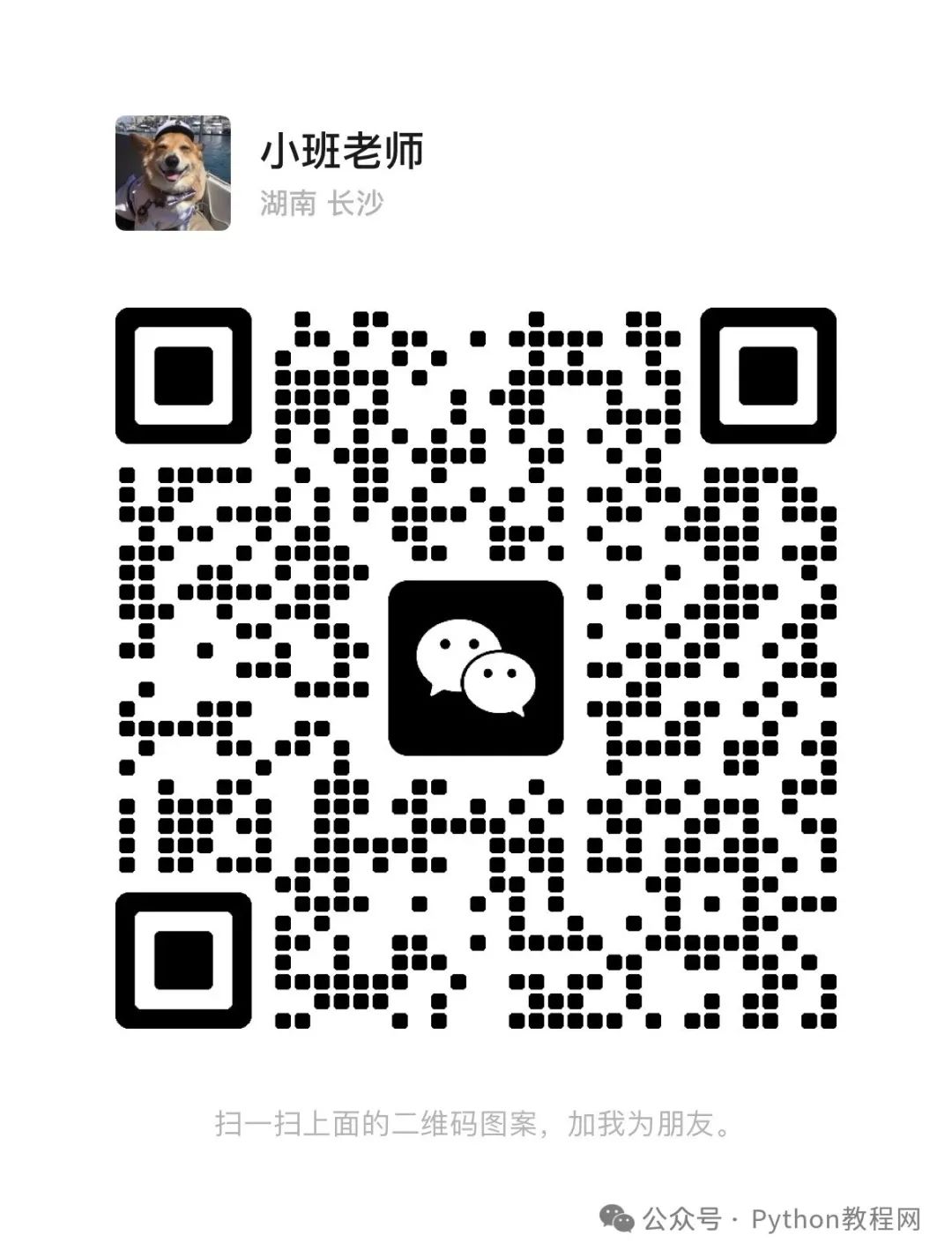There is no doubt that Python is one of the most popular programming languages today. For many novices who have never ventured into the field of computer programming, mastering Python deeply seems like a daunting task. In fact, as long as you master a scientific learning method and formulate a reasonable study plan, it only takes one month to go from beginner to expert in Python!
Today, I will share a document titled “Python Learning Notes”, which includes 35 key points, such as: types, strings, lists, tuples, statement syntax, loops, modules, etc. The notes consolidate the content of each knowledge point into a single chapter, greatly enhancing the ability to distill information.
The goal of this document is to provide a relatively concise yet easy-to-understand Python tutorial. For Python beginners, this document is not difficult. However, if you have a certain level of proficiency in Python, you will find that the document flows smoothly without interruption, making it easy to read.
For the complete version, see the end of the article.
Document Directory
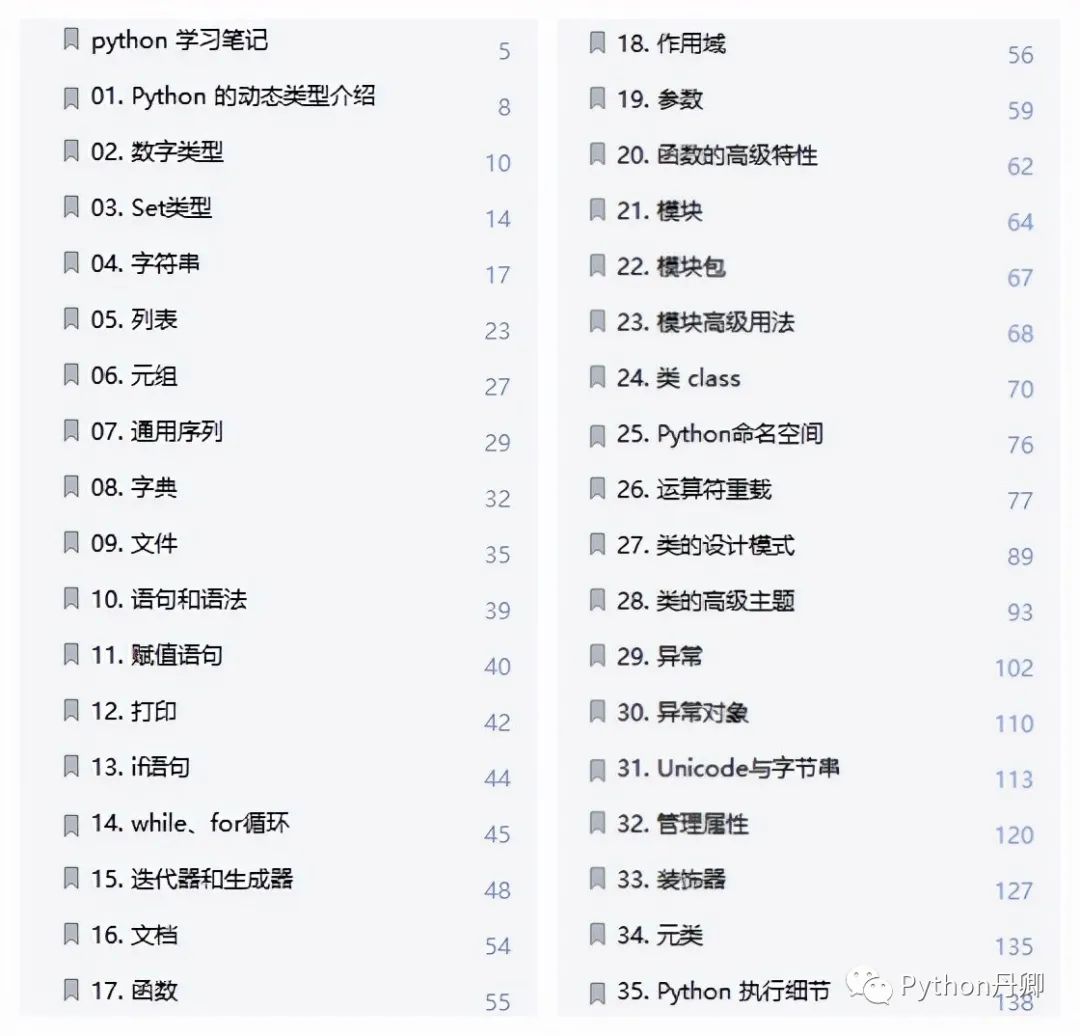
Department Content Display
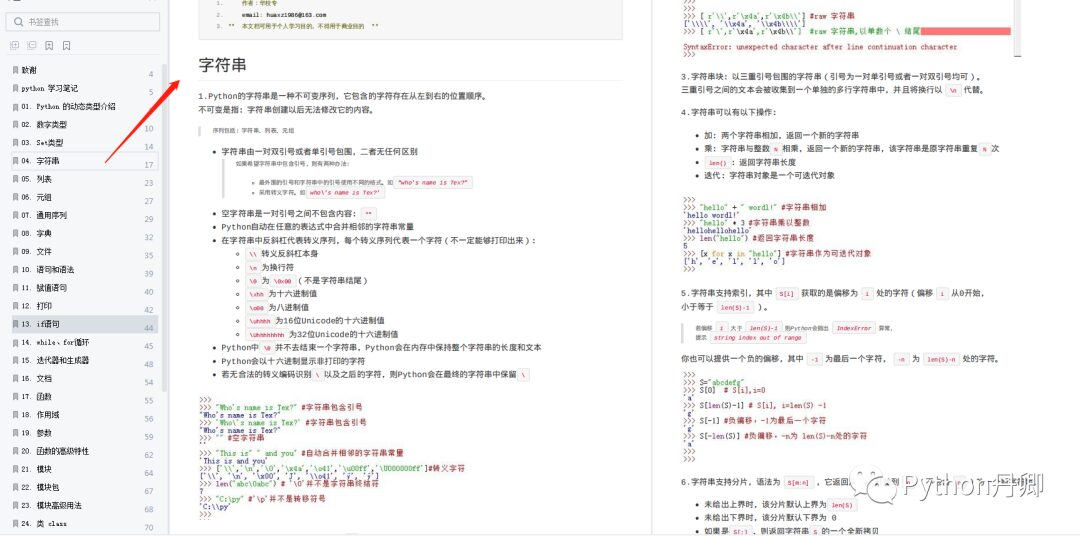
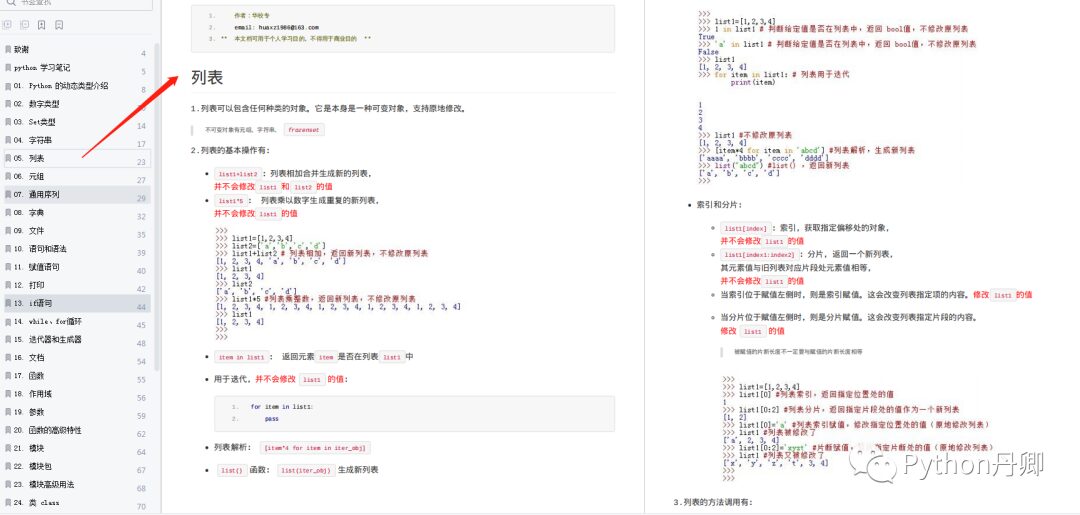
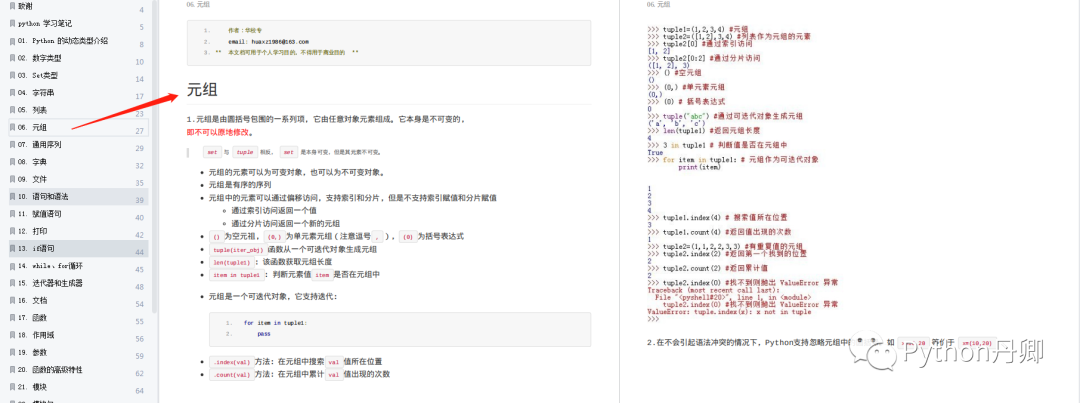
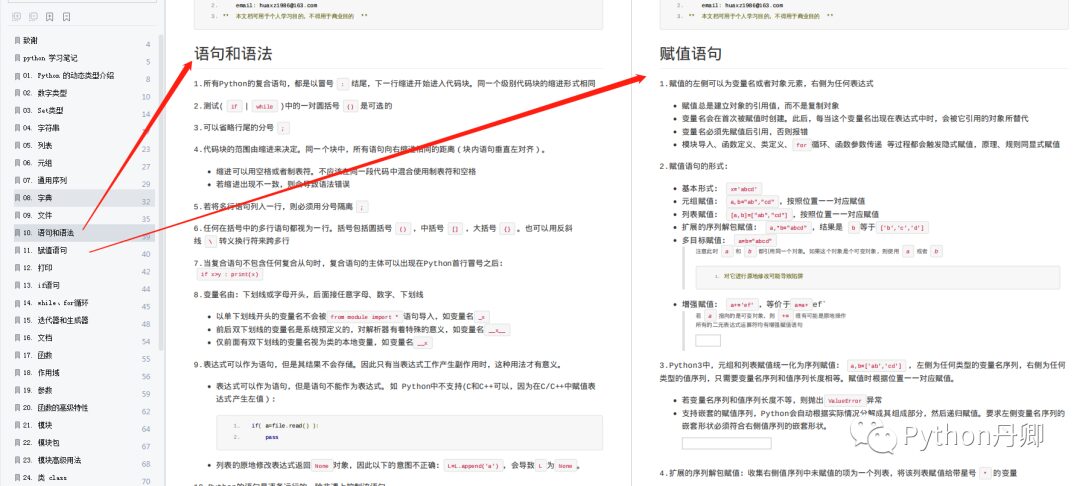
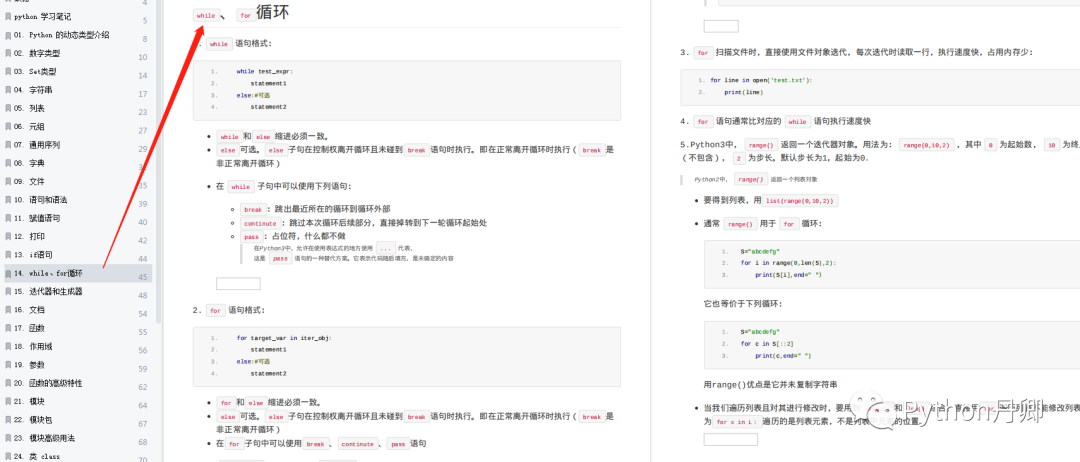
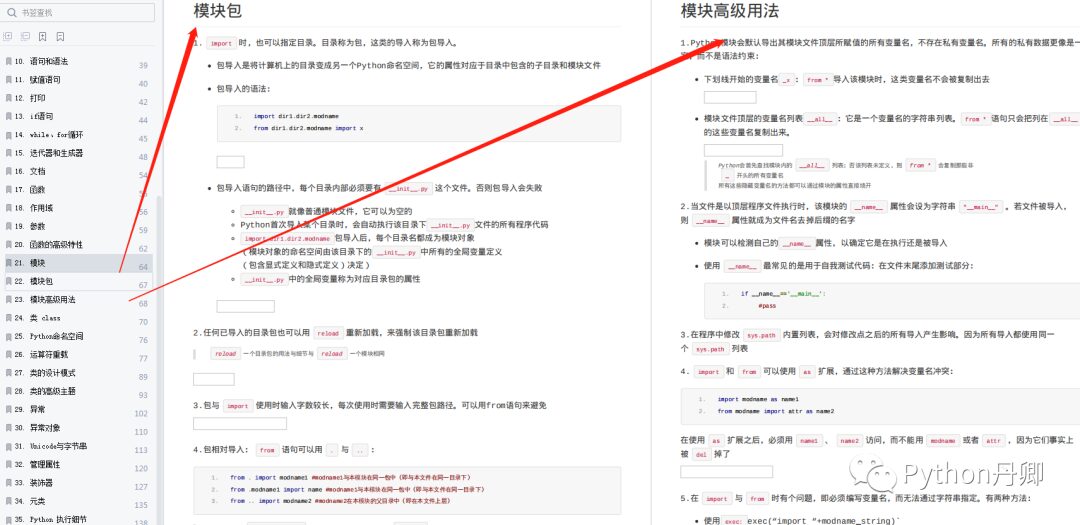
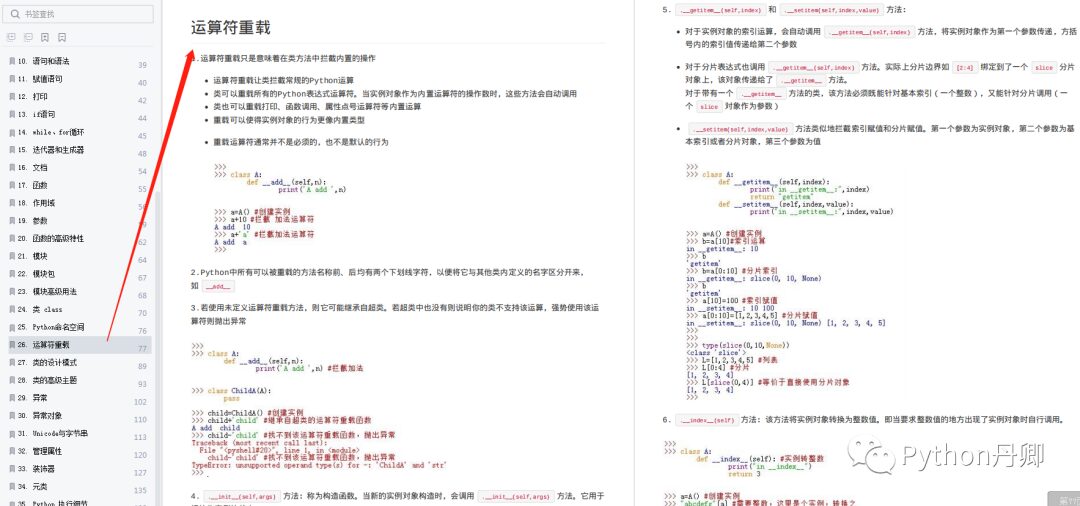
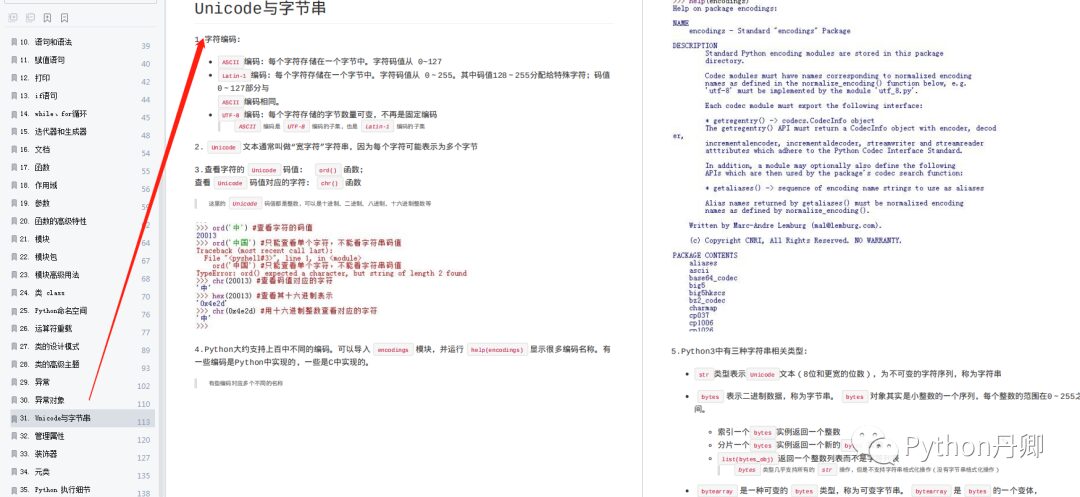
The full document consists of 138 pages, and due to space limitations, I will not display everything here. For the complete version, see the end of the article.
Basic Python Beginner Tutorial [Surprise Benefits at the End]
Chapter 1 Quick Start: Basic Knowledge
1.1 Interactive Interpreter
1.2 What is an Algorithm
1.3 Numbers and Expressions
1.4 Variables
1.5 Statements
1.6 Getting User Input
1.7 Functions
1.8 Modules
1.9 Saving and Executing Programs
1.10 Strings
Chapter 2 Lists and Tuples
2.1 Overview of Sequences
2.2 Common Sequence Operations
2.3 Lists: The Backbone of Python
2.4 Tuples: Immutable Sequences
Chapter 3 Working with Strings
3.1 Basic String Operations
3.2 Setting String Format: Simplified Version
3.3 Setting String Format: Complete Version
3.4 String Methods
3.5 Summary
Chapter 4 When Indexing Doesn’t Work
4.1 The Use of Dictionaries
4.2 Creating and Using Dictionaries
Chapter 5 Conditions, Loops and Other Statements
5.1 Revisiting Print and Import
5.2 Assignment Magic
5.3 Code Blocks: The Joy of Indentation
5.4 Conditions and Conditional Statements
5.5 Loops
…
Chapter 6 Abstraction
6.2 Abstraction and Structure
6.3 Custom Functions
6.4 Parameter Magic
6.5 Scope…
Chapter 7 Revisiting Abstraction
7.1 Object Magic
7.2 Classes
7.3 Thoughts on Object-Oriented Design
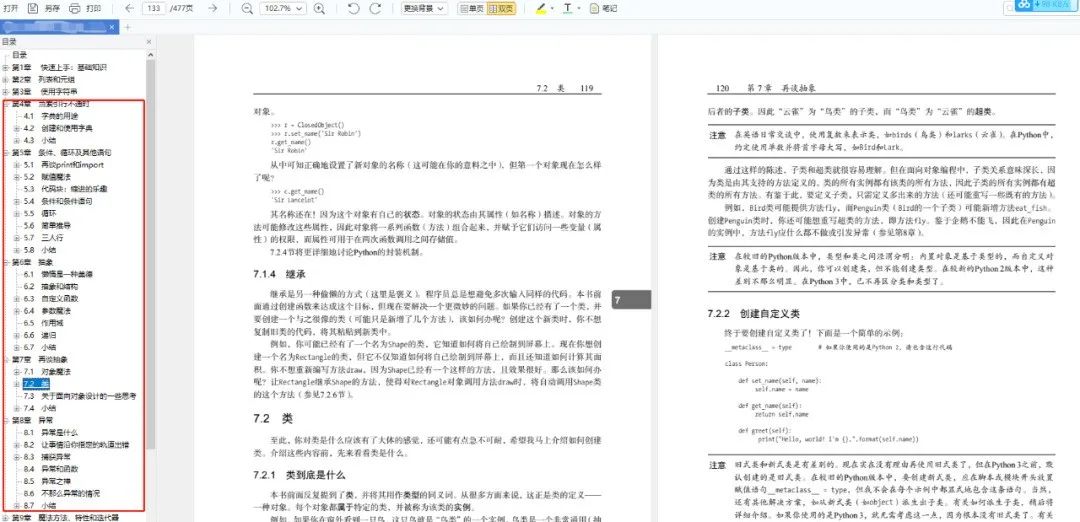
Chapter 8 Exceptions
8.1 What is an Exception
8.2 Making Things Error on Your Designated Track
8.3 Catching Exceptions
8.4 Exceptions and Functions
…
Chapter 9 Magic Methods, Properties, and Iterators
9.1 If You’re Not Using Python 3
9.2 Constructors
9.3 Element Access
…
Chapter 10 Out of the Box
10.1 Modules
10.2 Exploring Modules
10.3 Standard Library: Some Popular Modules
…
Chapter 11 Files
11.1 Opening Files
11.2 Basic File Methods
11.3 Iterating File Contents
Chapter 12 Graphical User Interface
12.1 Creating GUI Sample Applications
12.2 Using Other GUI Toolkits
…
Chapter 13 Database Support
13.1 Python Database API
13.2 SQLite and PySQLite
…
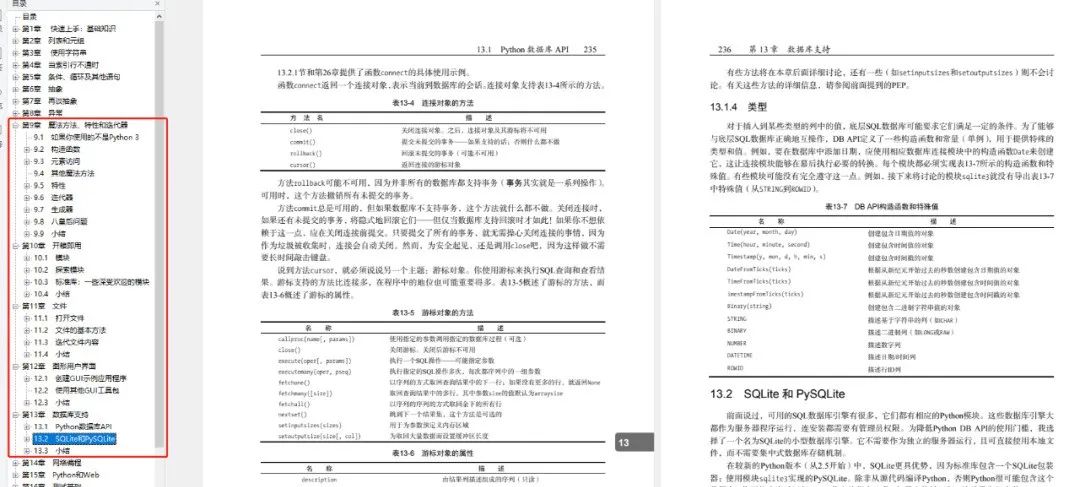
Chapter 14 Network Programming
14.2 SocketServer and Related Classes
14.3 Multiple Connections
…
Chapter 15 Python and the Web
15.1 Screen Scraping
15.2 Creating Dynamic Web Pages Using CGI
15.3 Using Web Frameworks
…Chapter 16 Testing Basics
16.1 Test Before Coding
16.2 Testing Tools
16.3 Beyond Unit Testing
…
Chapter 17 Extending Python
17.1 Having Your Cake and Eating It Too
17.2 Easy Ways: Jython and IronPython
…
Chapter 18 Program Packaging
Chapter 19 Fun Programming
Chapter 20 Project 1: Automatic Tagging
Chapter 21 Project 2: Drawing Charts
Chapter 22 Project 3: Universal XML
Chapter 23 Project 4: News Aggregation
Chapter 24 Project 5: Virtual Tea Party
Chapter 25 Project 6: Remote Editing with CGI
Chapter 26 Project 7: Building Your Bulletin Board
Chapter 27 Project 8: Sharing Files with XML-RPC
Chapter 28 Project 9: Sharing Files with GUI
Chapter 29 Project 10: Homemade Arcade Game
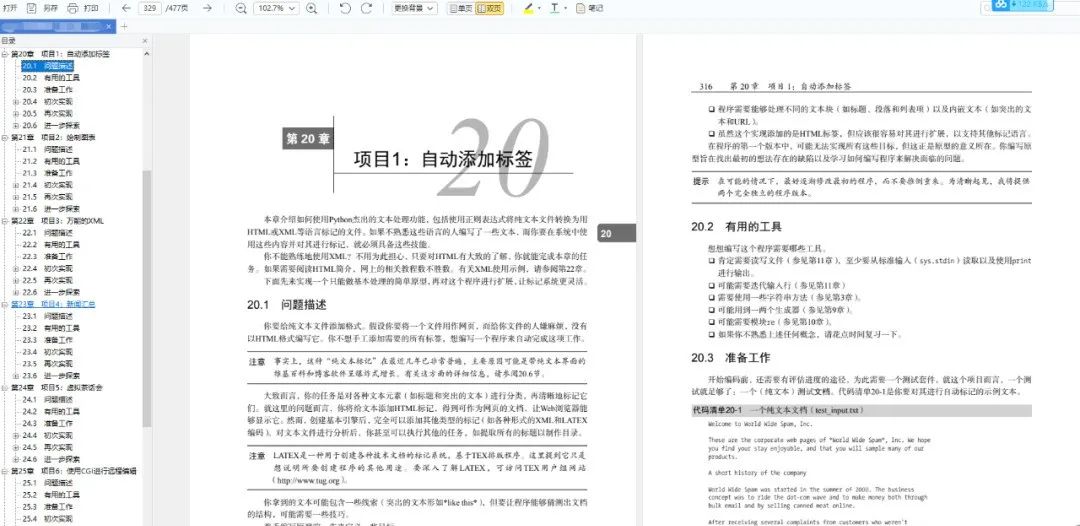
[See the end for access methods]
01
Hello, Getting Started with Python (500 pages)
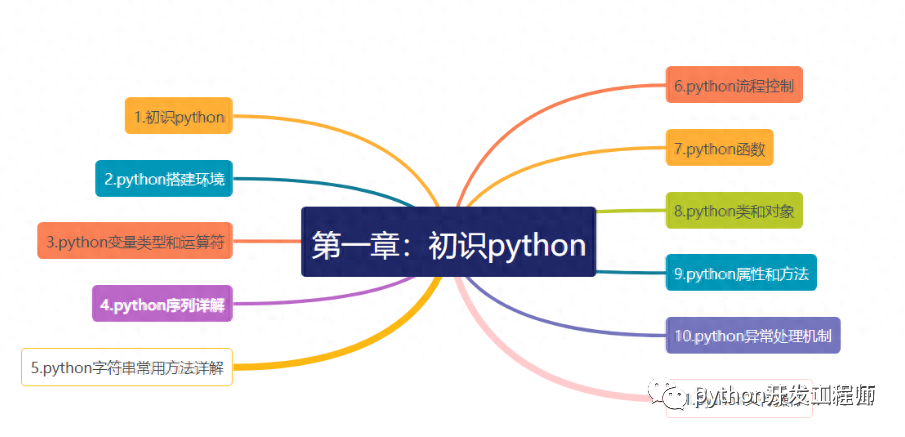
02
Python Big Data System (180 pages)

03
AI Development (100 pages)
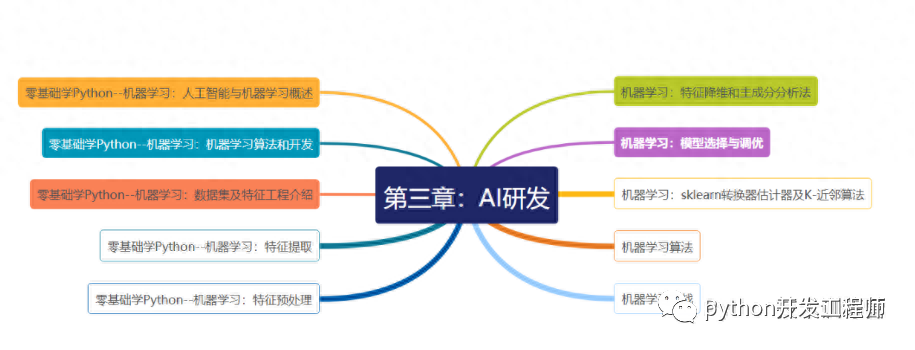
04
Full Stack Development System (80 pages)
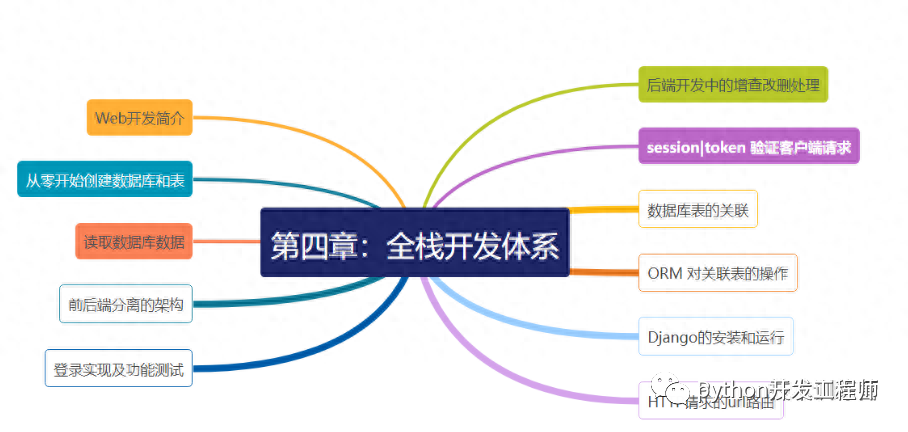
05
Core Python Programming (90 pages)
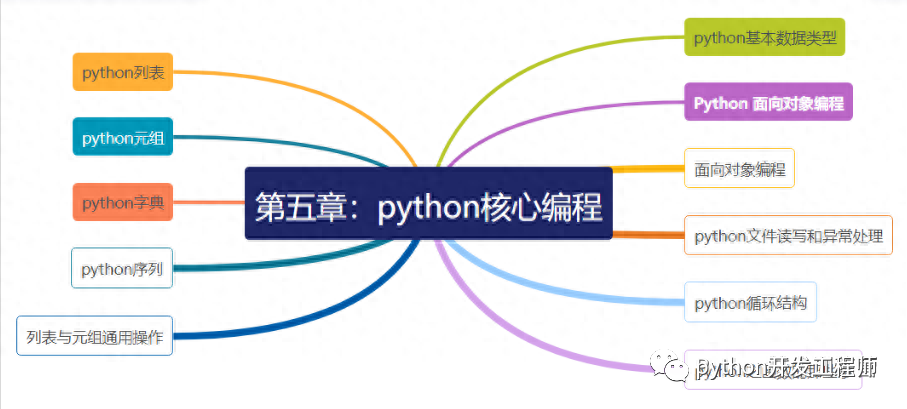
06
Python Concurrent Programming (100 pages)
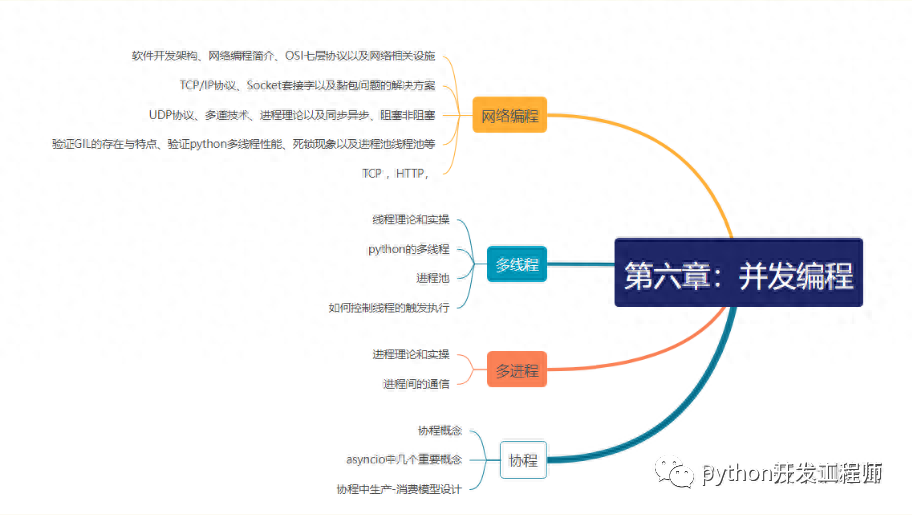
07
Database Programming (30 pages)
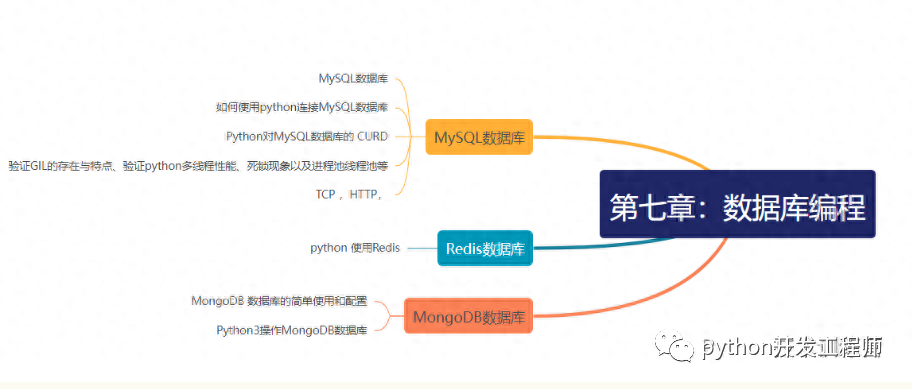
08
Getting Started with Python Web Scraping (90 pages)
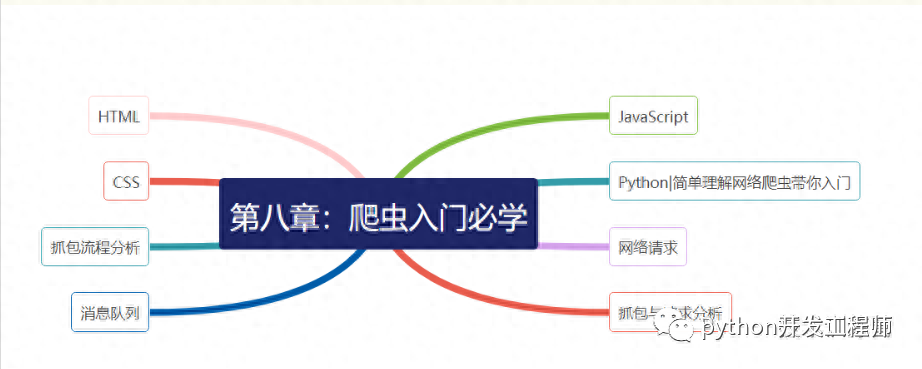
09
Framework Source Code (85 pages)

10
Essential JS Reverse Engineering for Web Scraping (40 pages)

11
Android Reverse Engineering (90 pages)
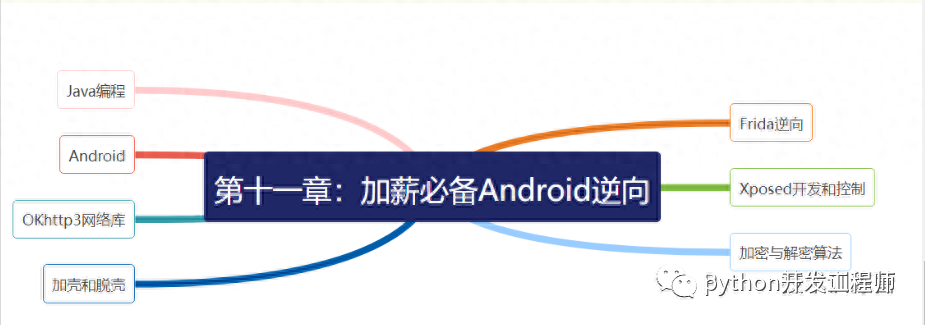
All the above materials have been packaged. If you need them, you can add:
